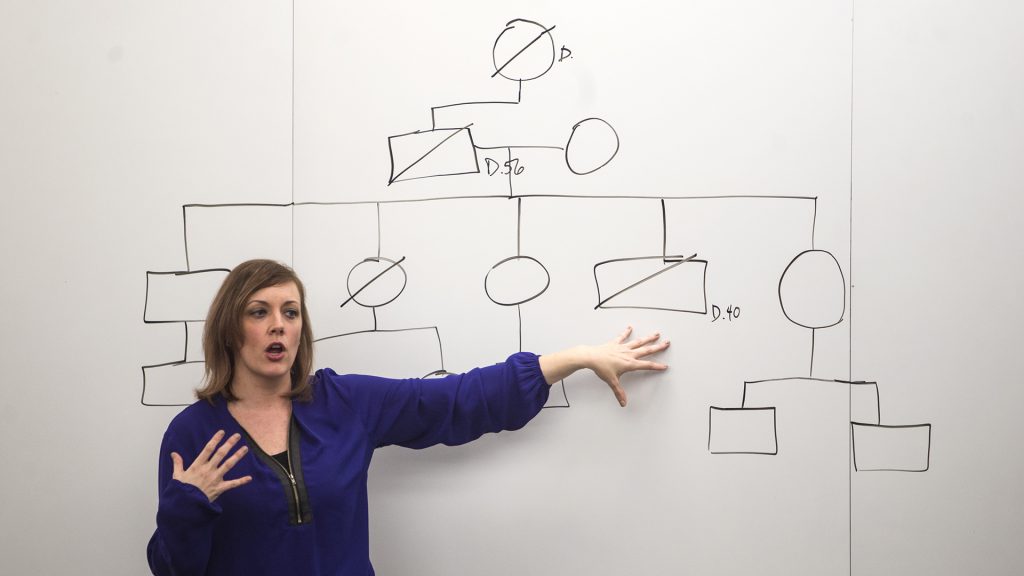For many families at-risk for Huntington’s disease, the ability to know how their later years will play out has become a reality.
Deciding to get genetically tested for Huntington’s is an important choice and a topic discussed by Krissi Putansu on Feb. 9 at the Medical Education & Research Facility. She described the testing process, her experiences as a caregiver for a family member with Huntington’s, and her overall experience related to the neurological disease.
Putansu is an active member of the Huntington’s community and was Huntington’s Disease Society of America’s Person of the Year in 2016. She has led a Huntington’s support group in Michigan for more than 10 years.
“She raises a ton of money for Huntington’s every year,” University of Iowa Professor of neurology John Kamholz said. “She really has invested a lot of her life and energies, which are considerable in this field.”
RELATED: UI researchers delve into traumatic brain injuries
Putansu said she was first introduced to Huntington’s by her grandfather and uncle, who both had the disease. As years went by, her mother began showing symptoms and was eventually diagnosed as well.
“One thing to really remember for people with Huntington’s is they are still a person,” Putansu said. “Even though you don’t understand them, and even though it’s hard for them to talk and walk, they still have a personality.”
Putansu said that if a parent has Huntington’s, the child has about a 50 percent chance of being diagnosed as well.
With consideration, Putansu decided to take the next steps to plan for her future.
“This is a very personal decision. A lot of physicians will sometimes say, ‘There’s a test. You should get tested. You need to know,’ ” she said. “But what they don’t realize is that individual has to live with that information every single day.”
Putansu said she just wants to make sure she does everything that she wants to do without holding back. She participates in theater and coordinates walks and a talent show known as “A Spotlight for a Cure” to raise money for Huntington’s.
“Anything I do is a platform to share information about Huntington’s,” she said.
UI genetic counselor Shawna Feely said Huntington’s is a neurological brain disorder in which a gene abnormality causes neurons to die.
“Over time, that person can develop problems with memory, mood, behavior, and movement,” she said.
RELATED: New study shows brain stimulation can alleviate Parkinson’s symptoms
Feely said genetic testing for is not very common because Huntington’s is terminal with no known cure.
“I think the number is growing but statistically people say about 10 to 20 percent of people at risk actually go ahead with testing,” she said.
Feely said there is a special testing protocol involving a genetic counselor, neurologist, and psychiatrist to determine if the at-risk individual is capable of handling the diagnosis. She said this process is also in order to prepare the person for the potential toll of knowing the results.
“Basically, people are finding out how they will eventually die,” she said. “So that’s a big decision, and it has emotional as well as financial ramifications.”
However, Feely said, even a negative result can be emotional if they are the only one of their siblings without the risk.
“It’s great to bring awareness about a very difficult disease that a lot of families are struggling within the community,” she said.



